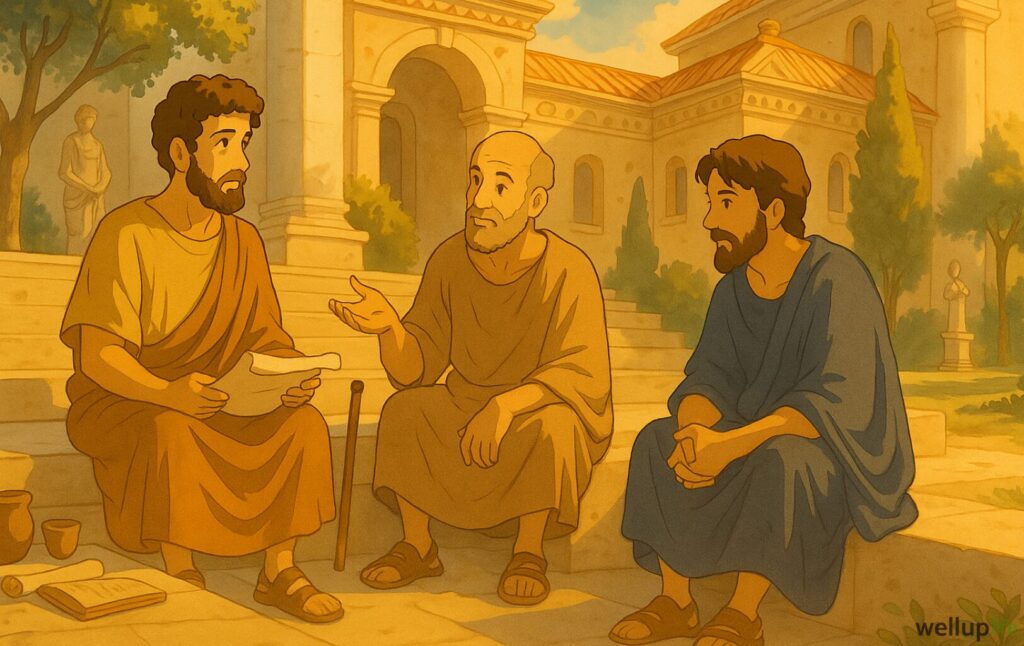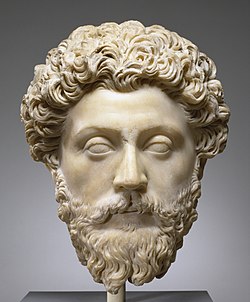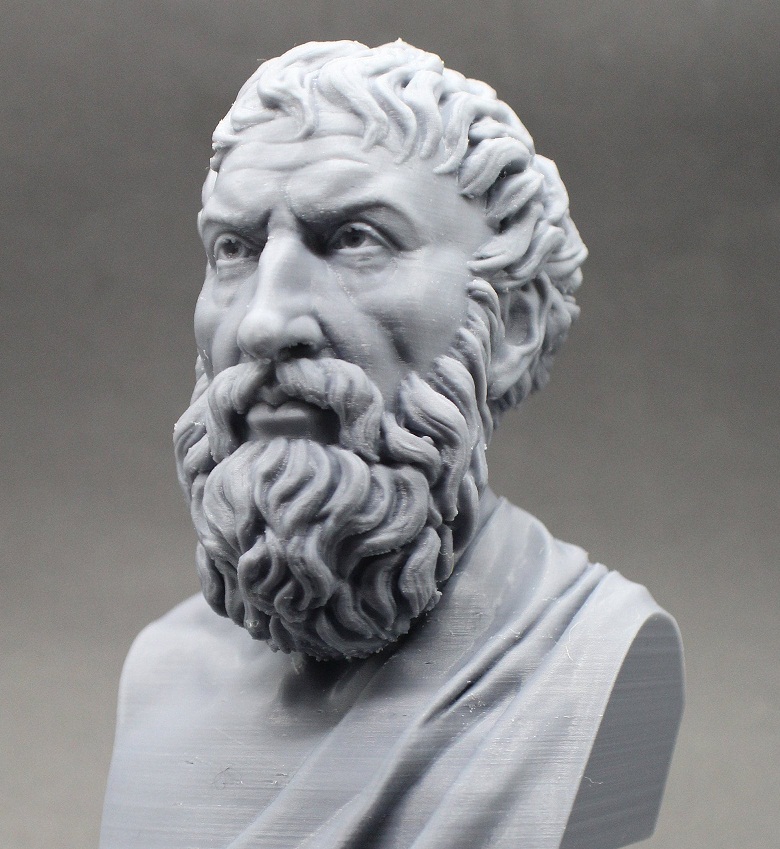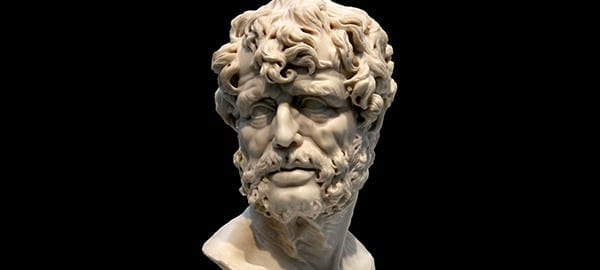Physical Address
304 North Cardinal St.
Dorchester Center, MA 02124
Written By:

Published On: August 4, 2025
Last Updated On: January 3, 2026
Reviewed By:


Everywhere we look, there’s suffering. We’re all chasing happiness, peace, and a sense of fulfillment — but more often than not, we end up feeling disappointed, anxious, or stuck.
Small things overwhelm us. We react without thinking. Our minds feel scattered and exhausted.
But what if, instead of getting swept away, you could pause… zoom out… and respond to life’s challenges with calm and clarity?
Sounds ideal, right? But how do we actually do that?
Don’t worry — I’ve been on the same path, and I’m here to walk you through it.
The answer lies in one of the oldest philosophies in the world: Stoicism.
Yes, it’s ancient — born in Greece and refined by Roman thinkers like Marcus Aurelius, Epictetus, and Seneca — but it’s also shockingly relevant today.
Because Stoicism isn’t about complicated theories. It’s about action, mindset, and discipline. Choosing how you live and respond, no matter what life throws at you.
In this post, we’re not just looking at quotes for inspiration.
We’re diving deep into 5 life-changing best Stoic quotes that can help you:
So take a breath. Let’s explore these timeless quotes — not just to change how you think, but how you live.
You have power over your mind — not outside events. Realize this, and you will find strength.
 — Marcus Aurelius
— Marcus AureliusHow often do we drain our energy trying to control things completely outside our reach?
We try to shape outcomes, fix people’s opinions of us, and force life to follow our plan. But what do we really gain from that?
Most of the time, nothing. We end up exhausted, anxious, and empty-handed.
We feel frustrated because, deep down, we hold this silent belief: “Things should go my way.” And when they don’t, we spiral.
But Marcus Aurelius, a Roman emperor who faced war, betrayal, and personal loss, left us with a simple but life-altering truth:
Our true strength lies not in controlling the world around us, but in mastering the world within us [1]Meditations by Marcus Aurelius.
When you start focusing only on what you can control, you’ll notice something:
You can’t control outcomes.
You can’t control traffic, other people’s moods, or even the next five minutes.
You can’t even control the wind or a falling leaf.
But you can control your thoughts, your choices, and how you respond—and that shift in focus changes everything.
A wise person isn’t someone who controls everything. A wise person is someone who clearly understands the boundary between what is within their power… and what isn’t.
And once they recognize that line, they stop wasting energy trying to push what cannot be moved. They become free—not because the world has changed, but because they have.
So next time you find yourself overthinking, worrying, or stuck in stress, pause and ask:
“Is this within my control?”
If the answer is no, then let it go. Don’t give it a second more of your life.
Because the core truth is simple:
If you can’t control it, don’t let it control you.
It’s not things that upset us, but our judgments about them.
 — Epictetus
— EpictetusThis one takes a moment to truly become understandable. Because at first, it feels like Epictetus is dismissing real pain. Like he’s saying, “Oh, your problems aren’t real—it’s just your thinking.”
But he’s not being dismissive — he’s being exact. He’s pointing to a subtle, powerful truth:
What disturbs us isn’t what happens… But the meaning that we attach to the happening [2]Discourses by Epictetus.
Think about it. Two people can go through the same situation and feel completely different. One crumbles under pressure, the other stays calm. One feels insulted, the other shrugs it off. The difference isn’t in the event — it’s in how they interpret it.
A few months ago, I sent a long message to someone I cared about. I put thought into it — opened up a bit — and expected a certain kind of response.
But hours passed. Then a day. Then another.
No reply.
Immediately, my mind took over:
“Maybe I said something wrong.”
“They’re ignoring me.”
“I must have upset them.”
The silence felt loud, and I started overthinking every line I’d written.
But then, out of nowhere, I got a message:
“Sorry I disappeared! I’ve been dealing with some stuff offline. Just needed a break.”
And just like that, everything my mind had created — the assumptions, the anxiety, the judgments — collapsed.
The facts were simple: they hadn’t replied yet.
Everything else was my interpretation.
We often suffer twice — once from what actually happens, and again from the story we tell ourselves about it.
When something goes wrong, or doesn’t go as expected, stop for a moment and ask:
You’ll usually find that your beliefs — not the event itself — are what’s hurting you. So, whenever something happens, before making any judgment about the event, reflect on it and try to catch your interpretations or judgments. As you begin to catch your judgments, you start gaining peace.
He who is brave is free.



What does it really mean to be free?
Most people think of freedom as external — more money, more options, no one telling us what to do. But Seneca, one of the most respected Stoic thinkers, offers a deeper kind of freedom.
Not freedom from responsibility, pressure, or risk…
But freedom from fear.
Bravery isn’t about recklessness — it’s about choosing to act even when fear whispers, “Don’t.”
And every time you do that, you loosen fear’s grip on your life.
I remember a time when I had to speak in front of a small audience — maybe 20 people. Nothing huge, but still, my palms were sweating, my heart racing, and my thoughts were spiraling:
“What if I mess up?”
“What if they judge me?”
“Why did I even agree to speak?”
But then something clicked: the only thing standing between me and that stage was fear, and fear isn’t a wall, it’s a fog.
So I took a breath, walked up, and spoke — not perfectly, but honestly. And something shifted.
I didn’t feel invincible afterward, but I felt free.
Not because the fear disappeared, but because I chose to act despite it.
That’s what Seneca meant.
Real freedom isn’t living without fear — it’s not being ruled by it.
Courage isn’t something we’re born with — it’s a skill we build.
Each time we lean into something uncomfortable, speak up when it’s hard, or take a step forward when everything in us wants to shrink back, we reclaim a bit more of our life.
The brave person is free because they aren’t trapped by what-ifs, overthinking, or the fear of failure.
They feel the fear and do it anyway.
What’s one thing you’ve been avoiding because fear is in the way?
What would your life look like if fear didn’t make your decisions?
Freedom isn’t waiting on the other side of fear. Freedom is what you feel the moment you walk through it.
We suffer more often in imagination than in reality.



This quote is both comforting and confronting.
Because if we’re honest, so much of our pain doesn’t come from the actual moment we’re in — it comes from the imagined future [3]Letters to Lucilius by Seneca (Letter XIII).
The what-ifs.
The worst-case scenarios.
The stories our minds create before anything even happens.
Seneca understood the human mind well. He knew that fear, anxiety, and overthinking are rarely about what’s real — they’re about what might happen.
A few years ago, I had to give an exam that felt like everything was riding on it. Days before it, I was already feeling sick from stress.
What if I forget everything?
What if I fail?
What if all my preparation was a waste?
I lost sleep, my appetite dropped, and I barely focused — not because of the test itself, but because of the constant storm inside my head.
And guess what? When the day came, the paper was tough… but manageable. I handled it. The suffering I imagined was far greater than the stress I actually experienced.
That’s the trap. We rehearse pain before it even arrives — sometimes for situations that never even happen.
Your mind is powerful, but it doesn’t always tell the truth.
It wants to protect you, so it plays out every bad scenario in advance. But most of that imagined suffering is unnecessary and unhelpful.
The next time your mind starts spiraling, pause and ask:
Chances are, the present moment is far less scary than your imagination.
Can you recall a recent moment where your imagination made things feel worse than they actually were?
What did you fear would happen — and what really happened?
Now ask yourself:
What would change in your life if you stopped living through every imagined disaster and started trusting yourself to handle things as they come?
Don’t explain your philosophy. Embody it.



If you’ve ever read a self-help book, binge-watched motivational videos, or shared an inspiring quote on social media (I know I have!), you’ll recognize the temptation Epictetus is warning us about: talking about good ideas instead of living them.
Words are easy. Behavior is hard.
Yet Stoicism insists that true wisdom shows up in our daily actions, not in our lectures, captions, or clever debates.
A friend once told me an eye-opening story from her first job. She had a manager who constantly preached “work–life balance.” He sent company-wide emails about self-care, posted mindfulness quotes on Slack, and proudly declared that everyone should log off by 6 p.m.
But every evening, he was still at his desk at 9.
He replied to emails at midnight, scheduled 7 a.m. meetings, and praised whoever stayed the latest.
No one remembered his emails. They remembered his example.
And his team quietly adopted the very overwork he claimed to oppose.
That’s the lesson: people don’t follow what we say; they mirror what we consistently do—and that includes the person we see in the mirror each morning.
You don’t need to explain your beliefs to prove them.
Just live them—quietly, consistently.
That’s what makes people trust you, and more importantly, what makes you trust yourself. So, next time, don’t explain your Philosophy, embody it first.
Think of one value you often talk about—kindness, discipline, authenticity, or health.
What’s one concrete action you can take today to embody that value more fully than any words could express?
Remember: the quiet example you set might be the loudest lesson someone else hears.
We often look outside ourselves for peace, clarity, and direction, hoping the world will change so we can finally feel better. But Stoicism gently reminds us: it’s not the world we need to master—it’s ourselves.
Each of these five quotes holds a mirror to our inner life:
The beauty of Stoicism is that it’s not about being perfect. It’s about being aware, intentional, and consistent—even in small ways.
You don’t need to memorize these quotes. You just need to practice them.
One thought at a time. One choice at a time. One breath at a time.
So next time life feels chaotic, confusing, or overwhelming, come back to these principles. Let them ground you. Let them guide you.
Because real transformation doesn’t happen when we read something wise—
It happens when we begin to live it.
Read Next: 30 Daily Affirmations That Actually Work (Backed by Psychology)
Stoic Thinker
Nitin Yadav, Editorial Director and Review Board Member at Wellup Life, is a Stoic thinker who inspires personal growth through resilience, discipline, and clarity.


Reviewed By:



Medically Reviewed By:

Wellup Life is your space for personal growth, wellness, and mindful living. From self-improvement and productivity to spirituality and relationships, we share practical insights and timeless wisdom to help you live with clarity, balance, and purpose.
Copyright © 2024 – Wellup Life — All rights reserved
